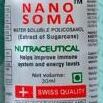Vitamin D Receptors and Cancer: What Current Research Reveals
Introduction
Vitamin D, often referred to as the "sunshine vitamin," is essential for maintaining bone health and immune system function. Beyond its well-known roles, emerging research has illuminated the critical involvement of vitamin D receptors (VDR) in cancer biology. VDRs are proteins that mediate the effects of vitamin D in various tissues, including those involved in cancer development and progression. This article explores the current understanding of VDRs in cancer research, their potential roles in tumor biology, and implications for future therapeutic strategies.
The Mechanism of Vitamin D Receptors
Vitamin D exerts its biological effects primarily through the activation of VDR, which is part of the nuclear receptor superfamily. Upon binding with its active form, calcitriol (1,25-dihydroxyvitamin D3), VDR undergoes a conformational change, enabling it to bind to specific DNA sequences and regulate the transcription of target genes. VDR is expressed in various tissues, including the intestine, kidneys, and various immune cells, making it a versatile player in physiological and pathological processes.
VDRs and Cancer: An Intriguing Link
Recent research suggests that VDRs may play a multifaceted role in cancer development. This relationship can be categorized into several key areas:
-
Cell Proliferation and Apoptosis: Vitamin D has been shown to inhibit cell proliferation and induce apoptosis (programmed cell death) in several cancer types. VDR activation can upregulate genes that promote cell cycle arrest and downregulate those that encourage proliferation. For example, studies have demonstrated that VDR signaling can reduce the growth of breast and prostate cancer cells through modulation of growth factor signaling pathways.
-
Differentiation: VDR activation can promote cellular differentiation, a process that can inhibit tumorigenesis. In hematological malignancies, such as multiple myeloma and leukemia, VDR ligands have been shown to enhance differentiation of malignant cells, reducing their tumorigenic potential.
-
Immune Modulation: VDRs are crucial in modulating immune responses. Vitamin D influences immune cell functions, including those of T-cells and dendritic cells, potentially altering the tumor microenvironment. An enhanced understanding of VDR interactions in immune cells is paving the way for new immunotherapeutic strategies in cancer treatment.
-
Antioxidative Effects: Recent studies indicate that VDR may help mitigate oxidative stress, a known contributor to cancer development. By promoting the expression of antioxidative genes, VDR may contribute to a reduced risk of cancer progression.
- Inflammation and Cancer: Chronic inflammation is recognized as a significant contributor to cancer development. VDR activation appears to attenuate inflammatory responses, which could have protective effects against inflammation-driven tumorigenesis.
Current Research Findings
Epidemiological Studies
Epidemiological studies have consistently shown an inverse relationship between vitamin D levels and cancer incidence. Individuals with higher serum levels of 25-hydroxyvitamin D have been associated with lower risks of various cancers, including breast, colorectal, prostate, and lung cancers. However, while these observational studies suggest an association, they do not confirm causality.
Clinical Trials
Randomized controlled trials investigating the role of vitamin D supplementation in cancer prevention and treatment are ongoing. While some results have been promising, such as showing potential benefits in colorectal cancer risk reduction, others have yielded inconclusive findings. It is critical for future trials to consider factors like baseline vitamin D levels, types of cancer, and specific VDR gene polymorphisms.
Genetic Studies
Investigations into VDR gene polymorphisms have revealed associations between specific variants and cancer susceptibility. These studies suggest that genetic differences can influence an individual’s response to vitamin D and, by extension, their cancer risk. The identification of these variants could someday lead to personalized vitamin D supplementation strategies.
Implications for Future Therapeutics
The insights gained from current research on VDRs and cancer underscore their potential as therapeutic targets. Vitamin D or its analogs could be utilized as adjuncts to conventional cancer therapies, enhancing treatment efficacy while potentially reducing side effects. Additionally, given the role of VDRs in immune modulation, there is growing interest in how vitamin D might improve outcomes in immunotherapy.
Conclusion
Vitamin D receptors are increasingly recognized as pivotal players in cancer biology, influencing key processes such as cell proliferation, apoptosis, immune response, and inflammation. Although the current research underscores the potential of VDRs in cancer prevention and treatment, further investigations are essential to clarify the extent of their roles, optimize dosages, and understand individual variability in response to vitamin D. As the field progresses, it is conceivable that insights from VDR research could lead to innovative, personalized cancer therapies that harness the protective qualities of this vital nutrient.
